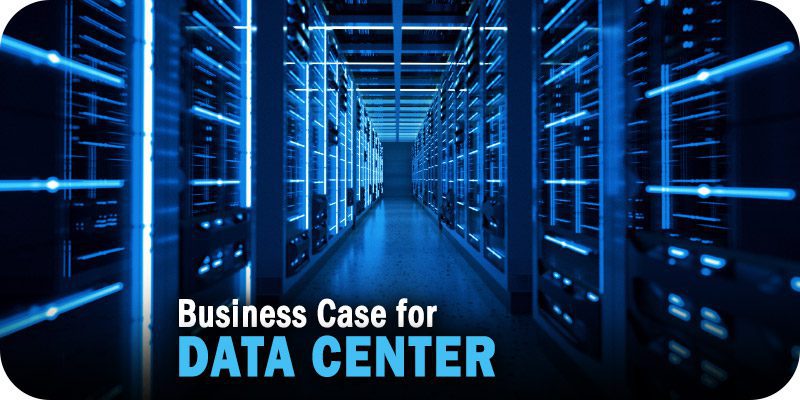The Business Case for Data Centers in the Enterprise


Solutions Review editors created this short resource to offer the business case for data centers in the enterprise.
In today’s data-driven world, organizations face the constant challenge of effectively managing and harnessing the vast amounts of data they generate and consume. As businesses increasingly rely on data for decision-making, compliance, and operational efficiency, having a centralized and secure infrastructure becomes paramount. This is where an enterprise data center comes into play. In this article, we will explore the business case for an enterprise data center and how it enables organizations to streamline data management, enhance security, achieve cost efficiencies, and drive innovation.
Business Case for Data Centers
Centralized Data Management
One of the key benefits of an enterprise data center is the ability to centralize data management. By consolidating data storage, processing, and analysis capabilities in a dedicated facility, organizations can efficiently manage data across various business units and departments. A centralized data center allows for standardized data management practices, uniform data governance policies, and consistent data access and sharing protocols. This leads to improved data quality, reduced data redundancy, and enhanced data integration, enabling organizations to make informed decisions based on accurate and reliable data.
Enhanced Data Security and Compliance
In an era of increasing cybersecurity threats and data privacy regulations, ensuring data security and compliance is a critical priority for organizations. An enterprise data center provides a secure environment for storing and managing sensitive and confidential data. It enables organizations to implement robust security measures, such as access controls, encryption, and intrusion detection systems, to protect data from unauthorized access and breaches. Additionally, a data center facilitates compliance with data protection regulations, industry standards, and internal policies through stringent data governance and audit capabilities.
Improved Reliability and Business Continuity
Downtime or disruptions in data access can have severe consequences for businesses. An enterprise data center offers enhanced reliability and business continuity capabilities. With redundant power supply, backup systems, and disaster recovery solutions, organizations can minimize the risk of data loss and ensure continuous access to critical data and applications. This resilience ensures that organizations can operate seamlessly, even in the face of unexpected events or system failures, reducing potential financial losses and reputational damage.
Scalability and Flexibility
As organizations experience data growth, scalability and flexibility become crucial. An enterprise data center provides the infrastructure to scale storage, processing, and computing resources as needed. This flexibility allows organizations to adapt to changing data requirements and accommodate future growth without significant infrastructure investments. Whether it’s expanding storage capacity, adding computing power, or adopting new technologies, a data center provides the necessary foundation for agility and scalability.
Cost Efficiencies
While establishing and maintaining an enterprise data center requires upfront investments, it offers long-term cost efficiencies. By centralizing data management, organizations can eliminate data silos, reduce duplicated infrastructure, and optimize resource utilization. A data center enables efficient data storage, effective resource allocation, and streamlined data management processes. Moreover, economies of scale can be achieved by consolidating IT infrastructure, negotiating better vendor contracts, and utilizing virtualization technologies. These factors contribute to cost savings and improved ROI over time.
Facilitating Innovation and Collaboration
An enterprise data center provides a platform for innovation and collaboration within organizations. It enables data scientists, analysts, and business users to access and analyze data in a secure and controlled environment. Centralizing data fosters cross-functional collaboration, as teams can easily share data, insights, and findings. Furthermore, a data center facilitates the adoption of advanced technologies, such as machine learning, artificial intelligence, and predictive analytics, enabling organizations to derive valuable insights and drive innovation initiatives.
Final Thoughts
An enterprise data center offers a compelling business case for organizations seeking to manage data effectively, enhance security, achieve cost efficiencies, and drive innovation. By centralizing data management, organizations can streamline processes, improve data quality, and reduce redundancy. Enhanced data security and compliance measures ensure protection against cyber threats and facilitate adherence to data privacy regulations.
Improved reliability and business continuity capabilities minimize downtime and ensure uninterrupted access to critical data. Scalability and flexibility allow organizations to adapt to changing data requirements and accommodate future growth. Cost efficiencies are achieved through resource optimization and economies of scale. Finally, an enterprise data center fosters innovation and collaboration, enabling teams to leverage data for insights and drive business growth.
When considering the implementation of an enterprise data center, organizations should assess their specific needs, evaluate costs, and consider factors such as data volume, security requirements, and scalability. It is essential to engage with experts and leverage their knowledge in data center design, infrastructure, and maintenance. Additionally, regular monitoring, proactive maintenance, and periodic updates should be performed to ensure optimal performance and security.
In conclusion, an enterprise data center provides a robust foundation for centralized data management, enhanced security, cost efficiencies, and innovation. By investing in an enterprise data center, organizations can streamline their data operations, adhere to compliance regulations, ensure data integrity, and leverage data-driven insights for strategic decision-making. As businesses continue to generate and consume increasing amounts of data, establishing a centralized and secure data center becomes a strategic imperative for long-term success in the data-driven era.
Widget not in any sidebars





















